Types of Water Heaters: Which One is Best for Your West Monroe Home?
West Monroe residents in need of a water heater replacement have a wide array of options to choose from. With traditional tanks, solar units, and tankless models among the available choices, selecting the right unit can seem daunting. Ensuring energy efficiency and sufficient hot water capacity are crucial factors to consider when making a decision. To simplify the process, our comprehensive guide examines each water heater type in detail, enabling you to make an informed choice that best suits the specific needs of your family. By weighing the individual advantages and disadvantages of each option, you can proceed with confidence and find the perfect water heater replacement for your West Monroe home.

Traditional Storage Tank Water Heaters
When it comes to water heating, tank-style units are a go-to option for efficiently heating and storing water in insulated tanks. Whether you prefer gas, electric, or oil as your energy source, these heaters deliver satisfyingly hot water on demand.
Pros:
These traditional models are known for their lower upfront costs compared to other types of water heaters.
They often come with longer warranty periods, providing added protection and peace of mind.
Unlike other appliances that require intricate care, maintaining a tank water heater is straightforward and doesn't demand a significant investment of time or effort.
Cons:
Traditional water heaters, though they may get the job done, are notorious for their lower energy efficiency. As a result, homeowners are left to foot the bill for higher operating expenses that can accumulate over time.
The size of the tank directly impacts the quantity of hot water that can be stored and used, resulting in potential shortages during high demand periods.
Over time, tank water heaters can develop leaks or fail, leading to potentially severe consequences for the surrounding area. Water damage is a constant threat when a water heater malfunctions, and it can wreak havoc on your property.

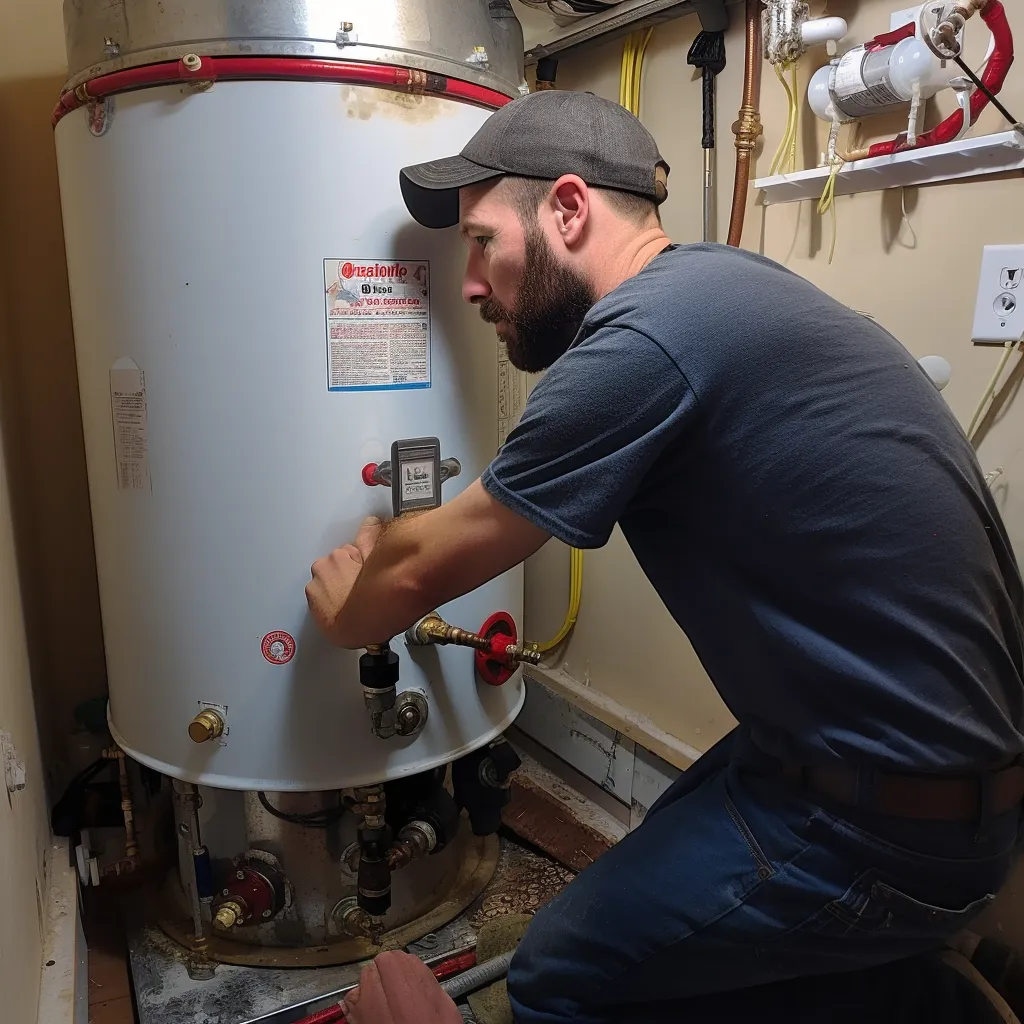
Tankless Water Heaters
You might want to explore the option of a tankless water heater. Unlike traditional tank-style models, tankless water heaters offer a modern and efficient solution for your hot water needs. By heating water on demand instead of continuously storing and heating it, tankless units not only save energy but also free up valuable space in your home.
Pros:
Thanks to the compact design of a tankless water heater, the process of installing a water heater replacement in West Monroe becomes a breeze.
Tankless water heaters are designed to provide consistently low monthly bills thanks to their energy-saving capabilities.
You won't run out of hot water as long as there is demand.
Tankless water heaters have a longer lifespan. These innovative appliances are designed to have a remarkable life expectancy, making them a savvy and cost-effective investment for homeowners.
Cons:
The initial cost of tankless water heaters is typically higher than that of traditional water heaters.
Venting complexities in small spaces.
Limited capacity for high-demand applications.
Heat Pump Water Heaters
Heat pump water heaters are an energy-efficient excellent choice. What sets heat pump water heaters apart is their ability to extract heat from the air using a small compressor. This ingenious design allows them to use minimal energy while still efficiently heating water. As a result, homeowners can enjoy hot water without worrying about high utility bills.
Pros:
Heat pump water heaters offer immense energy efficiency benefits that surpass traditional water heaters. Heat pump water heaters utilize advanced technology to extract heat from the surrounding air and transfer it to the water, instead of generating heat directly. By tapping into the existing heat in the air, these units consume significantly less energy, resulting in substantial cost savings on utility bills. This increased efficiency is particularly beneficial in West Monroe, where hot and humid summers provide an abundant source of warm air.
These environmentally friendly water heaters are designed to harness renewable energy from the air, making them a highly sustainable choice. By utilizing this renewable energy source, they contribute to a significant reduction in carbon emissions and help combat climate change. Embracing these water heaters not only helps protect the environment but also promotes a greener and more sustainable future.
Heat pump water heaters are equipped with a backup power source that allows them to continue operating even when the electricity goes out.
Cons:
Investing in a heat pump water heater may come with a slightly higher initial price tag compared to traditional water heaters. However, this upfront cost is justified by the long-term benefits and energy savings it provides.
Unlike traditional water heaters, heat pump water heaters may need additional airflow and room for proper installation.
Heat pump water heaters might have a restricted capacity, leading to a reduced availability of hot water per usage.
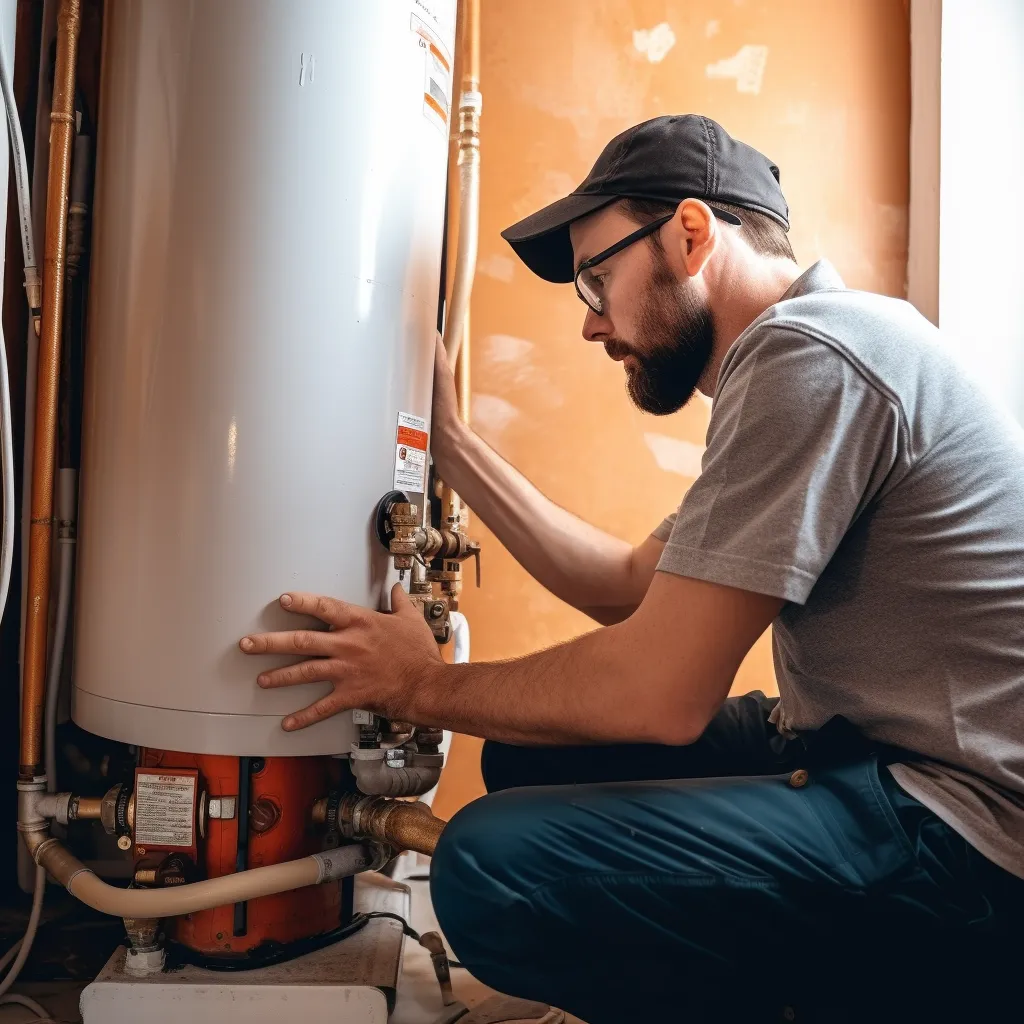
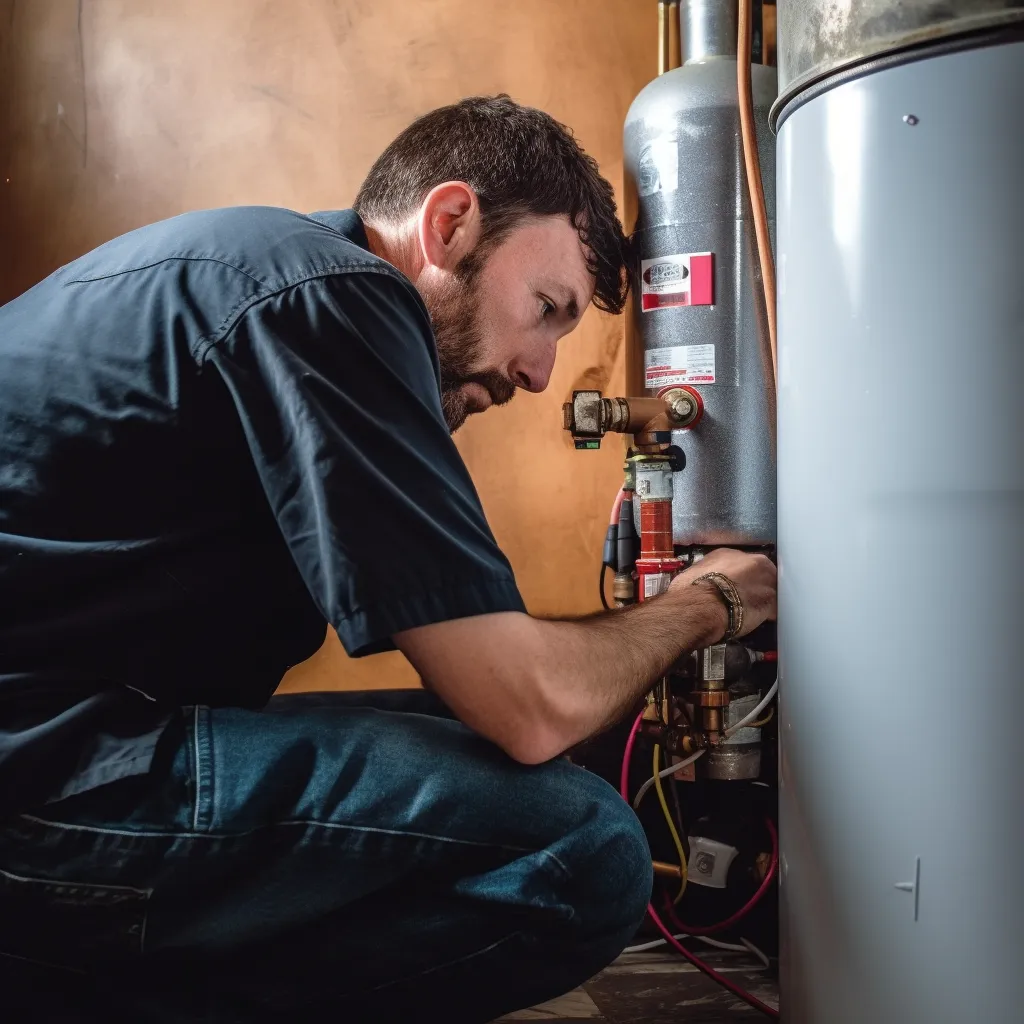
Heat Pump Hybrid Water Heaters
One increasingly popular choice is a heat pump hybrid water heater. Combining the advantages of both conventional storage tank water heaters and heat pump systems, these units offer superior efficiency and lower operating costs.
Pros:
By embracing increased energy efficiency, individuals can benefit from substantial savings on their utility bills.
Renewable energy utilization for sustainability..
Hot water availability during power outages.
Longer lifespan compared to traditional storage tank heaters.
Cons:
Higher initial cost compared to conventional storage water heaters.
Potential ventilation and space requirements that may pose installation challenges.
Limited capacity means there is only a certain amount of hot water that can be used at a given time. This limitation results in a finite supply of hot water available for every use.
There is a potential risk of water damage in the event of a tank failure or leakage.
Solar Powered Water Heaters
If you're looking to save on energy costs and adopt a more sustainable approach to heating water, consider a solar-powered water heater. These innovative systems utilize the sun's energy to heat stored water, resulting in lower monthly utility bills and a reduced carbon footprint. There are two primary types of solar water heaters: active and passive systems. Both offer a straightforward and cost-effective solution for heating water.
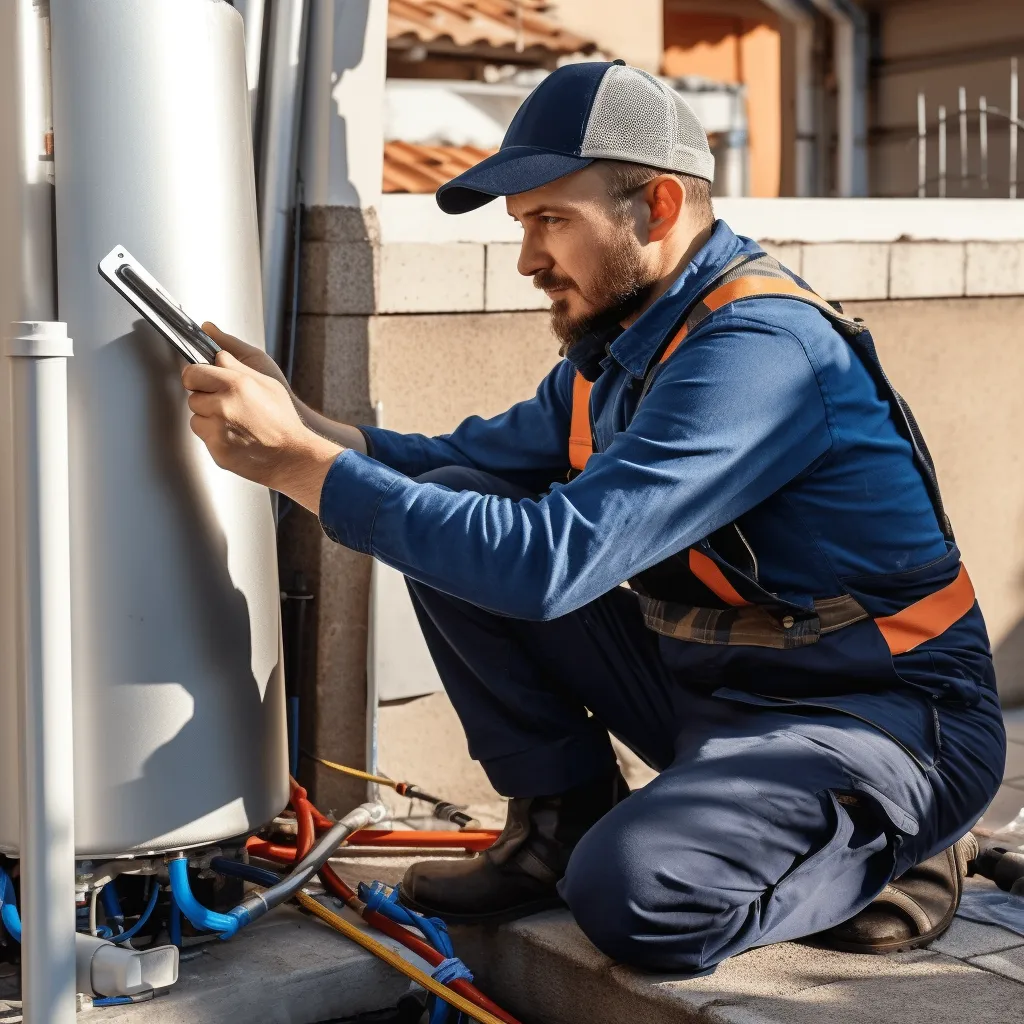
Active Systems:
Active solar-powered systems are a popular choice. These innovative systems utilize pumps to transfer hot fluid from the collectors to a storage tank, ensuring efficient operation and a reliable supply of hot water. With their ability to harness solar energy effectively, active solar-powered water heaters can generate ample amounts of hot water, meeting the needs of your household effortlessly.
Passive Systems:
Passive solar water heaters offer a unique and efficient solution. By harnessing the power of the sun, these systems utilize natural convection to heat the fluid and transfer it to a storage tank. Not only are they cost-effective, but they also boast low installation and maintenance costs. While they may not provide the same volume of hot water as active systems, passive solar water heaters are an eco-friendly and economical choice for meeting your hot water needs.
Pros:
High efficiency, resulting in cost savings on energy bills.
Utilization of renewable energy from the sun.}
Longer lifespan compared to traditional water heaters.
Cons:
Higher initial cost compared to traditional storage tank heaters.
Additional space and equipment requirements may complicate installation.
Risk of water damage if solar panels become faulty or damaged.


Point-of-Use Water Heaters
Innovative point-of-use water heaters provide hot water on demand, without the need for bulky storage tanks. They are especially well-suited for small spaces or individuals looking for a cost-effective and energy-efficient alternative. By delivering hot water directly at the point of use, they eliminate the need for long pipe runs and reduce heat loss, saving both time and money for West Monroe residents.
Pros:
High energy efficiency, resulting in lower monthly utility expenses.
The compact size of our product ensures effortless installation and hassle-free maintenance even in limited spaces.
Longer lifespan compared to storage tank heaters.
Cons:
Higher initial cost and potential need for extra ventilation and installation space.
Reduced hot water capacity can result in a restricted amount of hot water available for each use.
Higher risk of water damage due to tank failure or leaks.
Water Heaters With Hydronic Boilers
Hydronic boilers are a popular choice for water heating systems due to their ability to distribute heat evenly throughout your home. Unlike traditional water heaters, which rely on a single source of heat, hydronic boilers use hot water from the boiler to circulate heat through pipes and radiators, providing a comfortable and consistent warmth.
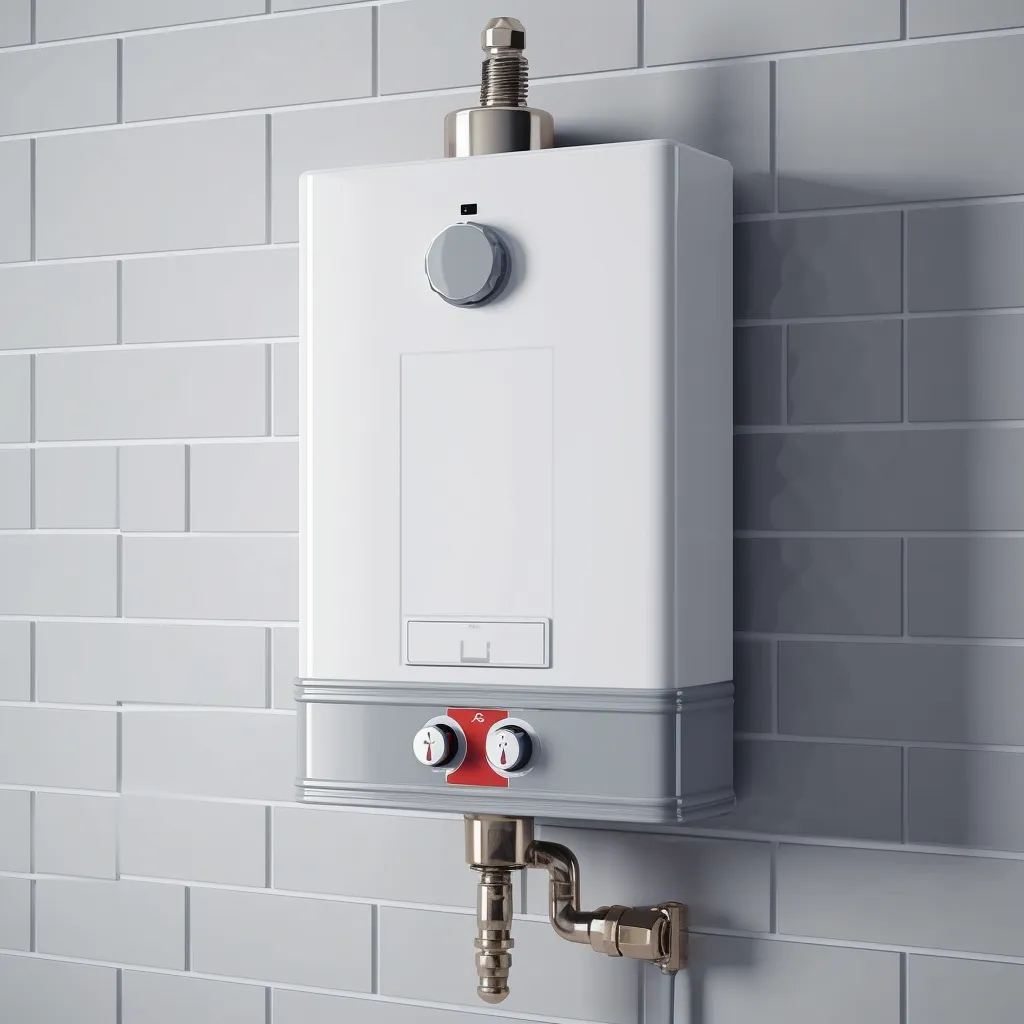
Pros:
Achieve greater energy efficiency, resulting in reduced monthly expenses on utility bills.
This energy-efficient system provides the dual benefit of space heating and domestic hot water.
Compact design for easy installation in tight spaces.
Longer life expectancy compared to traditional tank water heaters.
Cons:
Although initial costs may be higher compared to traditional storage models, the advantages of investing in newer storage solutions outweigh this consideration in the long run.
The limited capacity of this hot water system means that it can provide less hot water for each use.
Possibility of noise generation during operation.
There is a possibility that you may be ineligible for specific utility rebates or incentives.
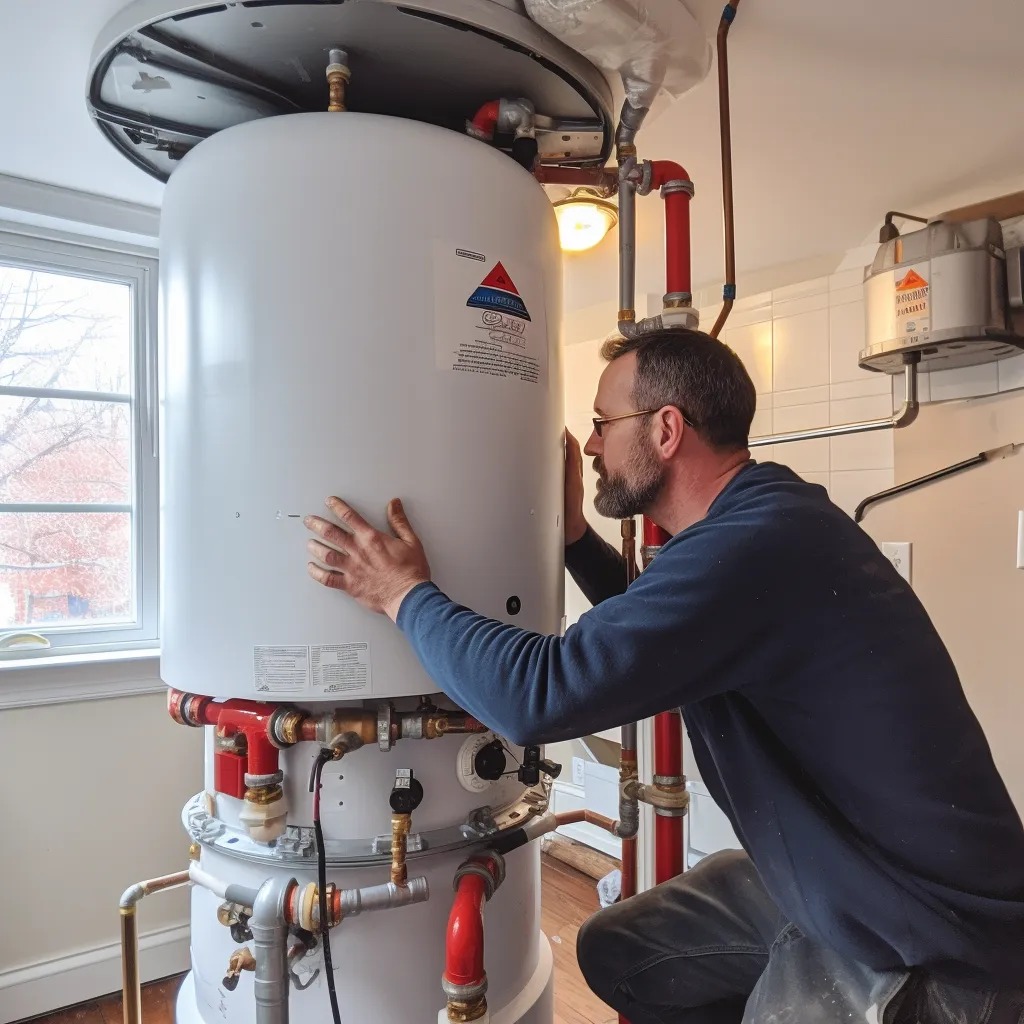

Smart Water Heaters
Revamp your current water heating setup by opting for state-of-the-art smart water heaters. These innovative devices bring with them a host of benefits, including enhanced energy efficiency and cost-effectiveness. Equipped with Wi-Fi enabled thermostats, they allow for seamless management of your hot water usage and expenses, irrespective of your location. Effortlessly regulate the temperature settings to suit your preferences, all at the touch of a button on your smartphone. By choosing smart water heaters, you can ensure optimal control and convenience for your hot water needs.
Pros:
Experience the convenience of remote management and take charge of your water heater with ease.
By taking advantage of energy-saving modes, such as vacation mode, you can optimize the efficiency of your new water heater.
The compact size of the product allows for effortless installation and maintenance, especially in areas with limited space.
Longer life expectancy compared to traditional storage tank heaters.
Cons:
Higher cost compared to traditional storage water heaters.
Certain utility rebates or incentives may not be applicable in all cases.
Upgrading your water heater system may require the installation of updated software that is compatible with the latest technologies and devices.
Potential security risks if the Wi-Fi connection is not secure

Condensing Water Heaters
Condensing water heaters are specifically designed to extract heat from exhaust gases, something that conventional units typically waste. By capturing and harnessing this otherwise wasted heat, condensing water heaters can maximize their performance and significantly increase energy efficiency.
Pros:
High energy efficiency, resulting in lower utility bills.
Longer lifespan compared to traditional tank water heaters.
Hot water availability during power outages.
Cons:
Higher initial cost.
Space and ventilation requirements.
Limited hot water capacity can be a frustrating issue for many households. When there is not enough hot water available, it can lead to discomfort and inconvenience.
How to choose the right water heater for your home
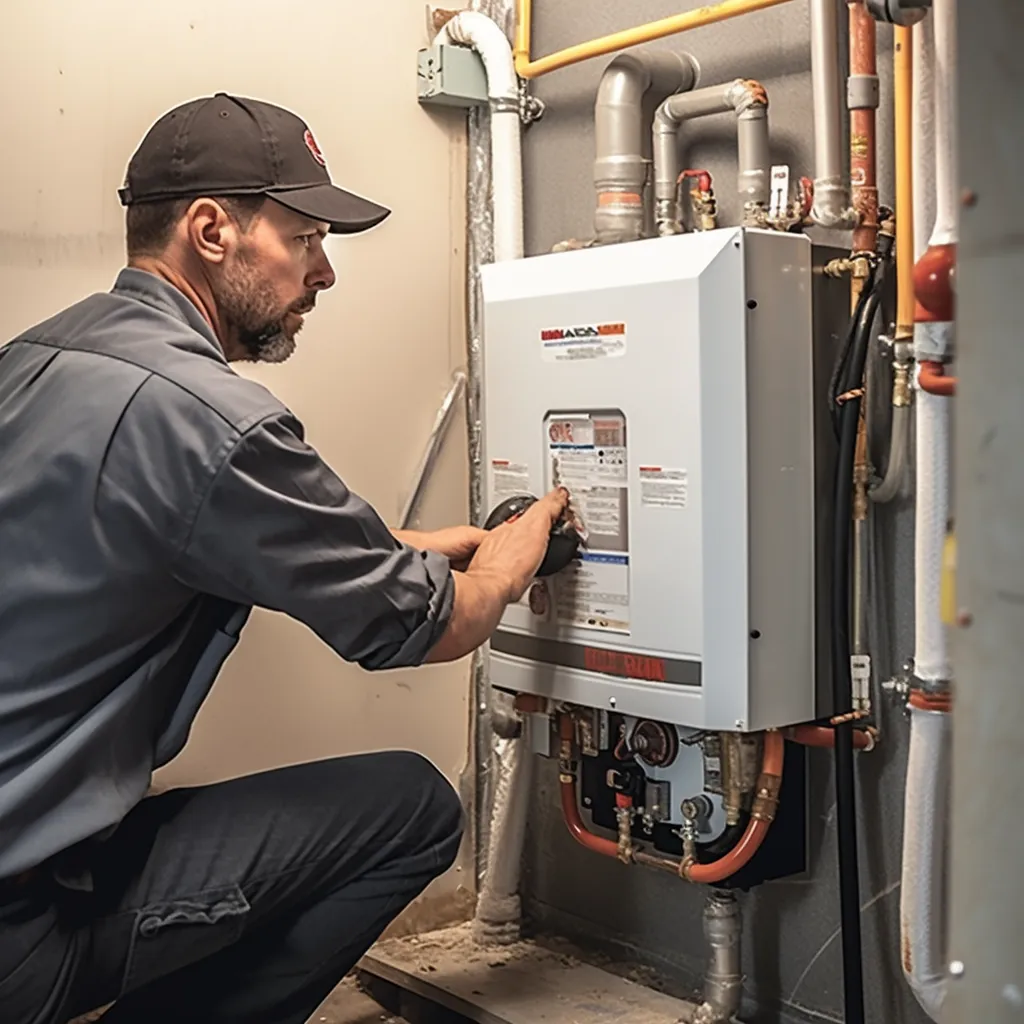
How to choose a water heater
When it comes to choosing a water heater for your home, there are a few important factors to consider. One of the key considerations is the size and capacity of the water heater. You'll need to determine how much hot water your household uses on a daily basis and choose a water heater that can meet those demands. Another factor to consider is the type of fuel or energy source that the water heater uses. Water heaters can be powered by electricity, natural gas, propane, or even solar energy. Each type has its own advantages and disadvantages, so it's important to take into account factors such as availability, cost, and environmental impact when making a decision. Efficiency is also an important factor to consider. Look for a water heater that has a high energy efficiency rating, as this can help you save on your energy bills in the long run. Additionally, consider the lifespan and maintenance requirements of the water heater. Some types may require more frequent maintenance or have a shorter lifespan, so it's important to factor these considerations into your decision-making process. One final consideration is the installation process. If you're replacing an existing water heater, you'll want to make sure that the new water heater is compatible with your existing plumbing system. If you're unsure about the installation process, it's always best to consult with a professional plumber to ensure that everything is done correctly and safely.
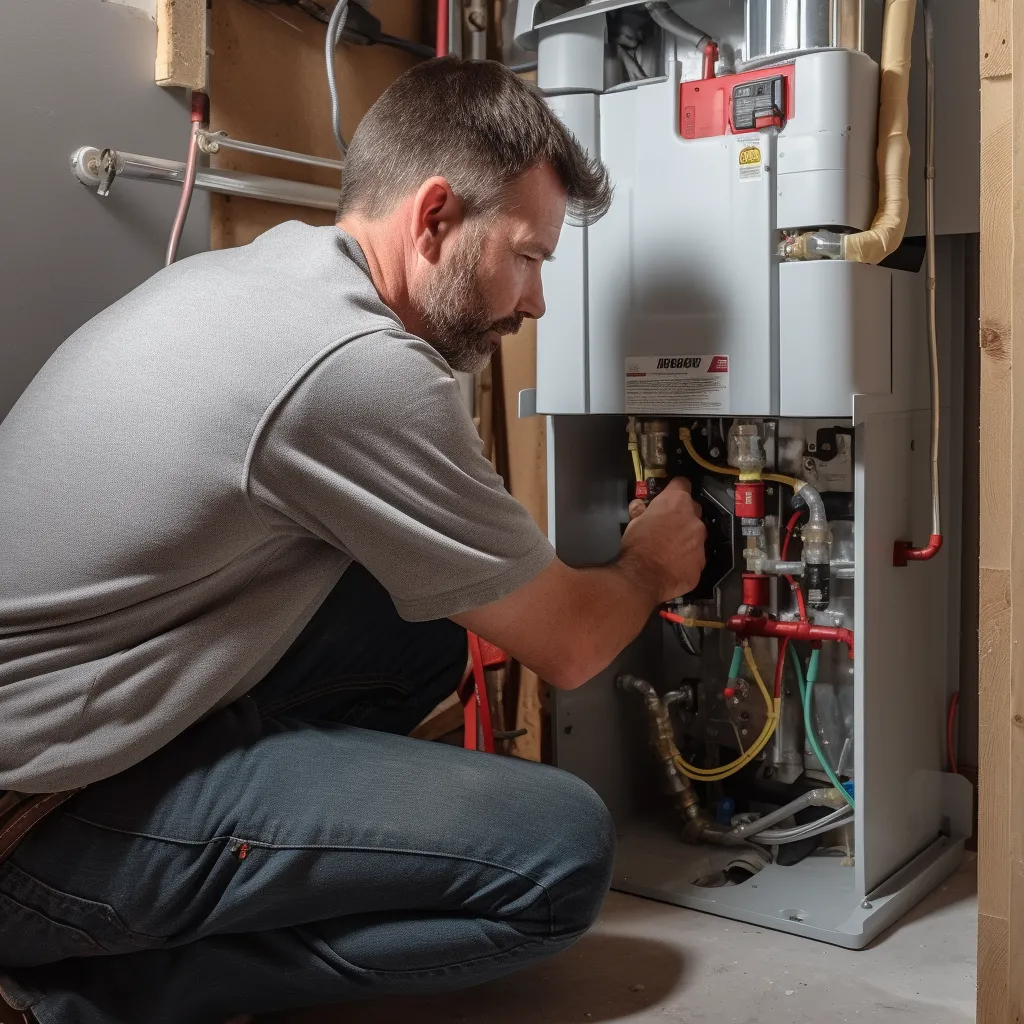
When should you replace your water heater?
Knowing when to replace your water heater is essential to avoid unexpected breakdowns and maximize energy efficiency. Various signs indicate that it's time for a water heater replacement in West Monroe. If you notice any of the following, it's advisable to consider getting a new water heater:
Age: Generally, water heaters have a lifespan of 8 to 12 years. If your water heater is approaching or exceeds this age range, it's time to start thinking about a replacement.
Inefficient Performance: If your water heater takes longer to provide hot water, struggles to maintain a consistent temperature, or if hot water runs out quickly, it may be a sign that it's nearing the end of its life.
Unusual Noises: Strange banging, popping, or rumbling noises coming from your water heater are often indicators of sediment buildup. Over time, this can lead to reduced efficiency and potential damage to the tank, indicating the need for a replacement.
Leaks: Any visible leaks in or around the water heater should not be ignored, as they can cause significant damage to your property. Leaks usually suggest that the tank has corroded or developed cracks, making replacement necessary.
Rusty or Discolored Water: If the hot water from your faucet appears rusty or discolored, it could be a sign that the interior of the water heater tank is corroding. This corrosion can lead to leaks or an overall decrease in performance.
Increased Energy Bills: As water heaters age, they become less efficient, leading to higher energy bills. If you notice a sudden surge in energy costs without explanation, it may be due to an aging, inefficient water heater that requires replacement.
Frequent Repairs: If your water heater requires frequent repairs or if the cost of fixing it is becoming increasingly expensive, it's more cost-effective to invest in a new, reliable water heater.
By staying attentive to these signs, you can determine when it is time to replace your water heater in West Monroe. Consulting with a professional can help you find the right replacement that suits your needs and ensures a steady supply of hot water for years to come.
Maintenance tips for water heater efficiency
To ensure that your water heater functions optimally and provides you with consistent hot water, regular maintenance is key. By adhering to a few simple routines, you can avoid potential issues and ensure that your water heater remains efficient and cost-effective. One of the most important steps you can take towards maintaining your water heater is flushing the tank annually. Over time, sediment and mineral deposits can accumulate at the bottom of the tank, reducing its efficiency. Flushing the tank helps remove these deposits, allowing the heater to operate at its full potential. Additionally, inspecting the pressure relief valve and replacing it if necessary is crucial. The pressure relief valve is designed to release excess pressure from the tank, ensuring its safety. Regularly checking this valve and replacing it when needed is crucial to prevent potential hazards. Another essential aspect of water heater maintenance is checking for leaks in the supply and drain lines, as well as the tanks themselves. Small leaks can quickly escalate into bigger issues, causing damage to your home and increasing your utility bills. Regularly inspecting these areas and addressing any leaks promptly can save you from costly repairs down the line. Furthermore, it is essential to keep an eye on the overall performance of your water heater. If you notice a decrease in the amount of hot water or a significant increase in energy consumption, it may be time to consider a replacement. Upgrading to a newer, more efficient water heater can save you money in the long run and ensure a continuous supply of reliable hot water.
Benefits of hiring a licensed plumber to replace your water heater
There are several benefits to hiring a licensed plumber for water heater repair or replacement. While some homeowners might consider tackling this task on their own, it's important to recognize the complexities and potential risks involved. Here are the top advantages of entrusting a licensed plumber with your water heater replacement:
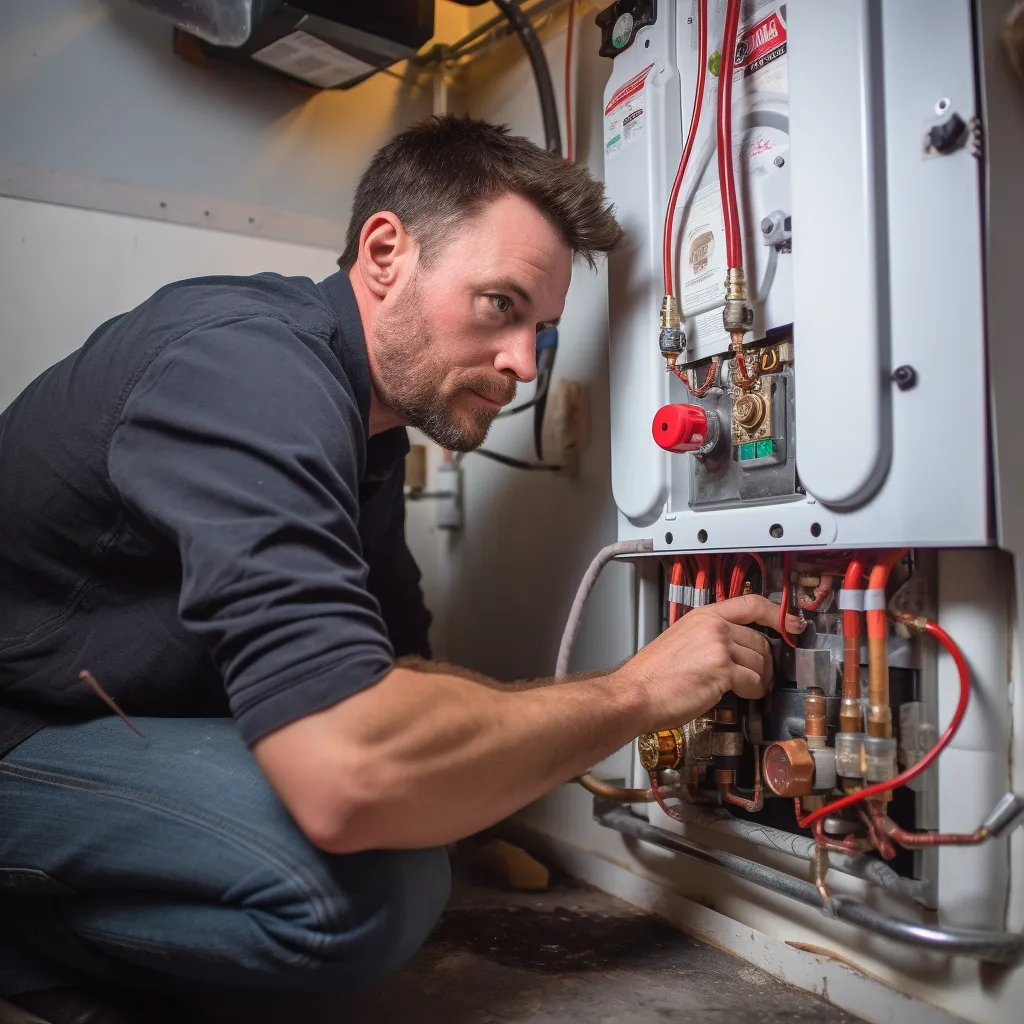
Expertise and Experience: Licensed plumbers undergo extensive training and acquire substantial experience in dealing with various plumbing issues, including water heater installations and replacements. They possess in-depth knowledge of different water heater models, their installation requirements, and the necessary safety measures to ensure a seamless and efficient replacement.
Compliance with Building Codes: Each location may have specific building codes and regulations governing water heater installation. Hiring a licensed plumber ensures your replacement will meet all the necessary codes, preventing any potential legal or safety issues in the future. Licensed plumbers have an understanding of these codes and will ensure your water heater replacement adheres to them.
Quality Workmanship: A professional plumber will provide high-quality workmanship, ensuring a reliable and long-lasting replacement for your water heater. They have the skill and expertise to handle any unforeseen challenges that may arise during the installation process, ensuring the work is done correctly the first time.
Safety Considerations: Replacing a water heater involves working with gas lines, electrical connections, and potentially hazardous materials. Licensed plumbers are well-versed in the safety protocols required for handling such components. They have the necessary tools and knowledge to safely install your new water heater, minimizing the risk of accidents or leaks that could endanger your household.
Time and Cost Savings: While attempting a DIY water heater replacement might seem like a cost-effective option, it can actually lead to costly mistakes or incomplete installations. In contrast, hiring a licensed plumber can save you both time and money in the long run. Professionals have access to the right tools, equipment, and materials, ensuring an efficient replacement process that minimizes any downtime for hot water in your home.
Warranty Coverage: Many water heaters come with warranties that require professional installation to remain valid. By hiring a licensed plumber, you can ensure that your replacement is performed according to the manufacturer's guidelines, safeguarding your warranty coverage and potential future claims.
You can see that hiring a licensed plumber for your water heater replacement in West Monroe offers numerous benefits. From their expertise and adherence to building codes to the assurance of quality workmanship and safety considerations, a professional plumber guarantees a seamless and reliable replacement process. Moreover, it can save you time, money, and provide warranty coverage for your new water heater. Don't underestimate the value of a licensed professional when it comes to such an important and potentially complex task.
Contact Us
GET IN FULL TOUCH
PHONE: (318) 933-7010
EMAIL:
shane@waterheaterwestmonroe.com
Shane Wright Plumbing
West Monroe, LA 71292
